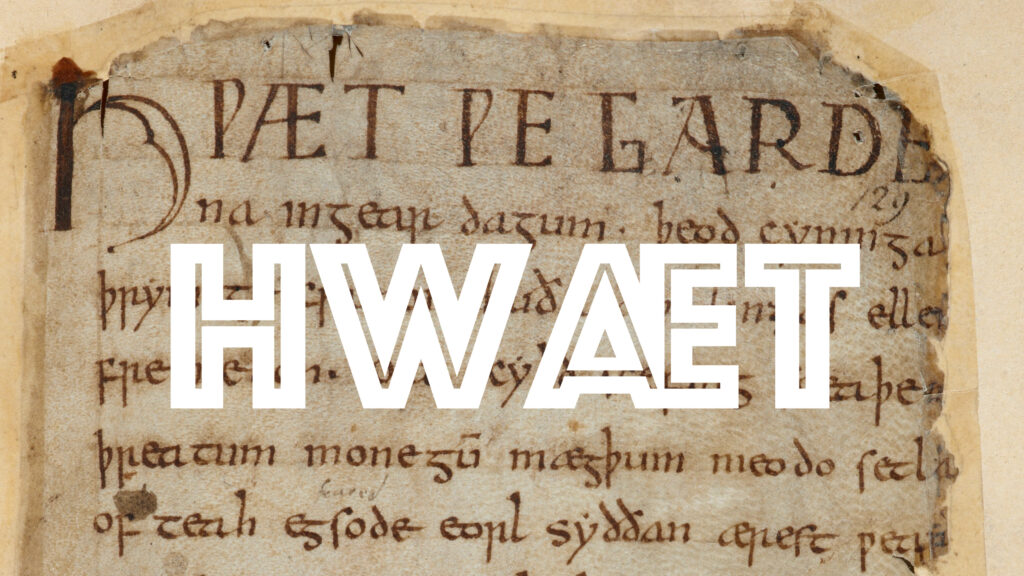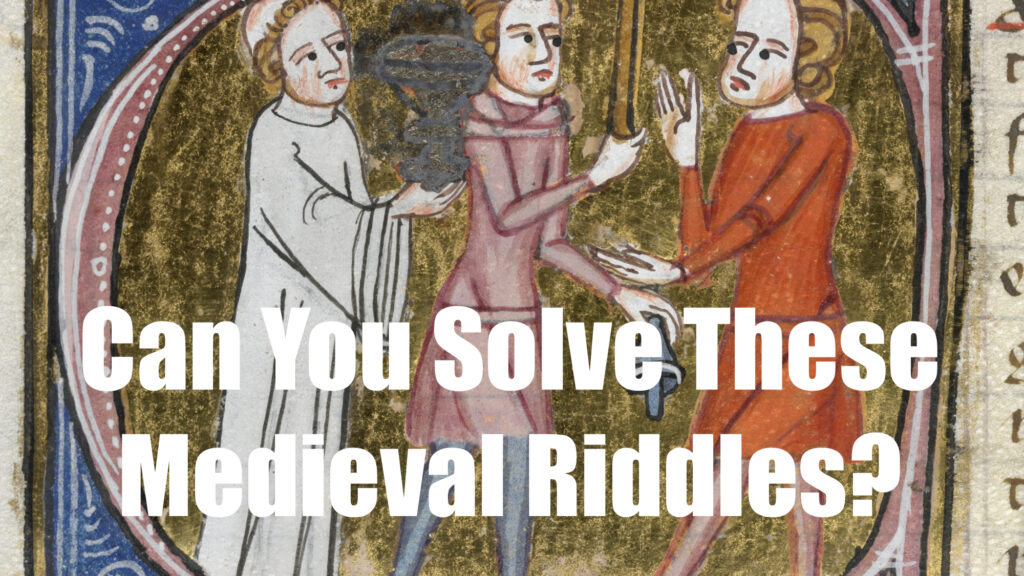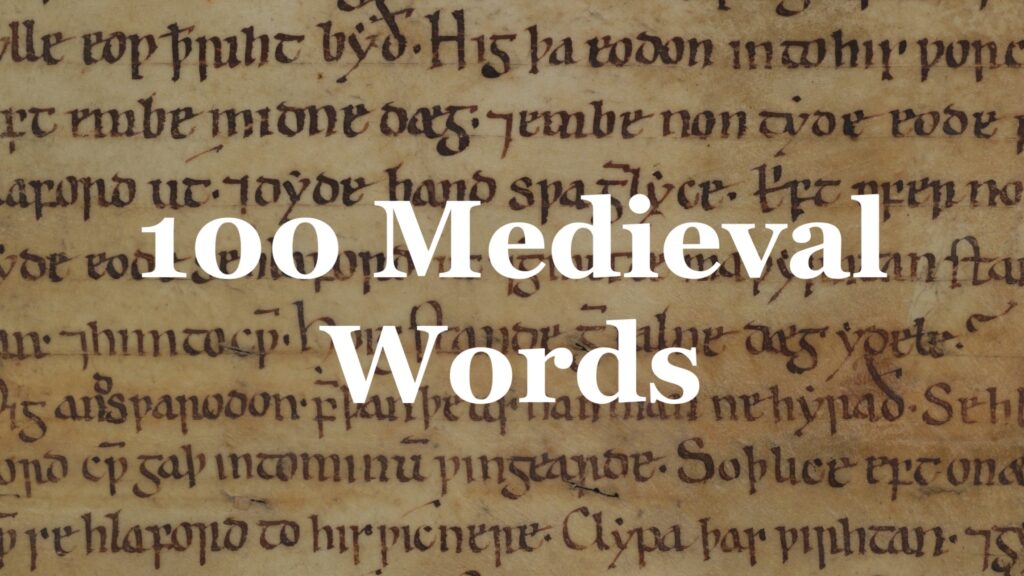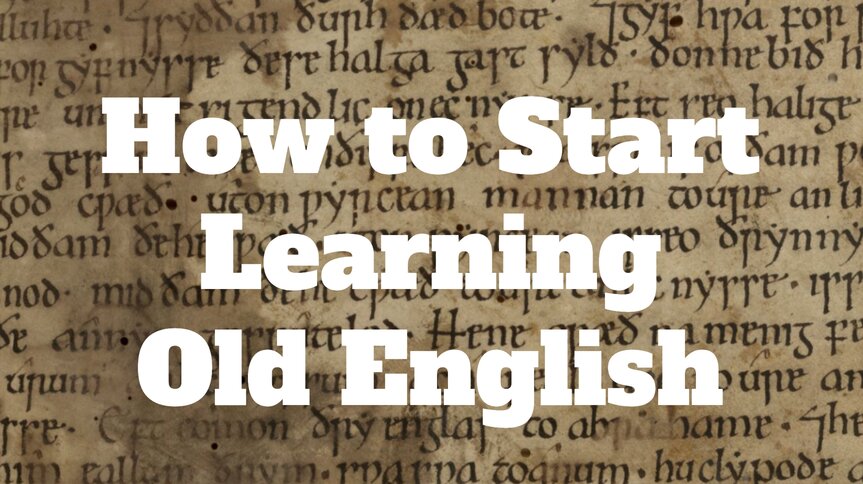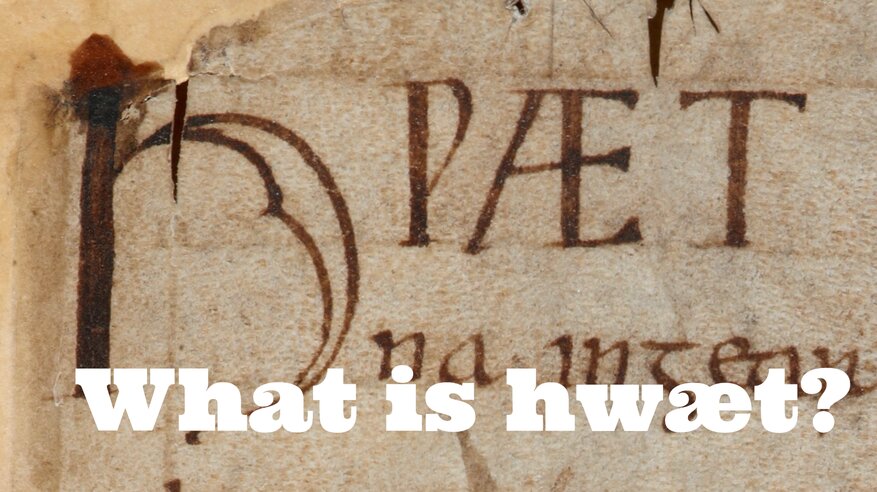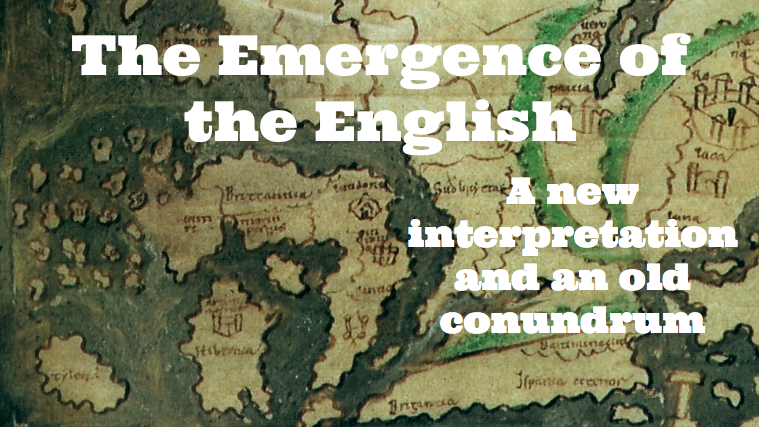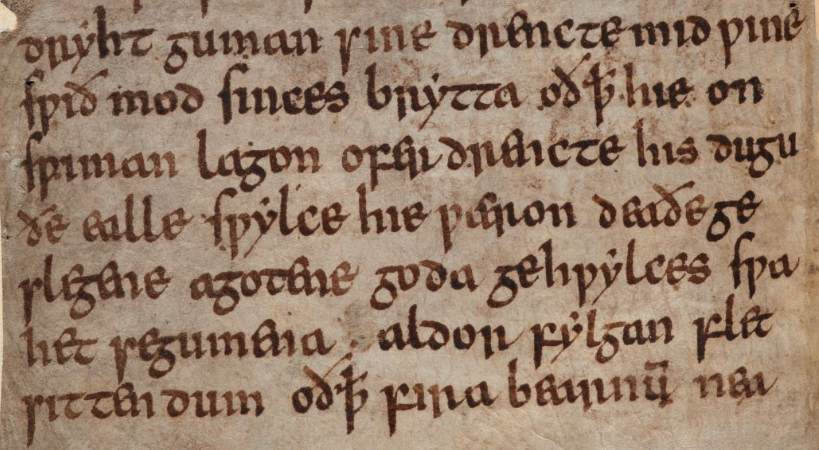What is Hwæt? The Debate Behind Beowulf’s Opening Line
Discover the meaning of hwæt, the iconic first word of Beowulf, and explore the medieval and modern debates over how it should be translated.
Can You Solve These Medieval Riddles?
Test your wit with 10 medieval riddles by Saint Aldhelm, a 7th-century English bishop and poet. Can you solve these ancient brainteasers?
2025 Toronto Old English Colloquium
Join the Toronto Old English Colloquium on Thursday, April 17, 2025, for a day of scholarly exploration into the poetic and visual intricacies of MS Junius 11—one of the most fascinating Old English manuscripts. Hosted by the Centre for Medieval Studies at the University of Toronto, this hybrid event features a symposium and keynote lecture open to both in-person and virtual attendees.
100 Medieval Words That Meant Something Totally Different
Here are 100 medieval words that have transformed over time—some in surprising ways!
New Medieval Books: Genesis Myth in Beowulf and Old English Biblical Poetry
The Bible opens with the Book of Genesis, which recounts the creation of the world and other foundational stories of Christianity. This book explores how these tales appear in early medieval English literature, including Beowulf.
30 Words that Changed their Meaning Between the Middle Ages and Modern Times
Language is constantly evolving, and many words we use today meant something completely different during the Middle Ages. In this article, we’ll uncover 30 words that changed their meaning between the Middle Ages and modern times, showing how the English language transformed alongside shifts in culture, beliefs, and daily life. Here are some surprising examples of just how much words can evolve over time.
New Medieval Books: Recovering Old English
By the 16th century, Old English was a language that could not be understood by the vast majority of the people in England. However, it was at this time that some scholars began to collect, edit and study these writings. This book tells the story of their work and achievements in preserving a medieval language.
23 Fascinating Old English Phrases and Medieval Proverbs
Old English, the language of early medieval England, is rich with phrases and proverbs that offer a glimpse into the past. In this article, we explore 23 fun and fascinating examples of Old English, bringing history to life. Dive in to discover how these medieval words can still resonate today.
New Medieval Books: The Deorhord
This book reveals what Old English sources had to say about animals, both real and imaginary. If there was a bestiary written in early medieval England it would look something like this.
Drout’s Quick and Easy Old English
Our newest addition to our Patreon Shop is the ebook Drout’s Quick and Easy Old English, by Michael D.C. Drout with Bruce D. Gilchrist and Rachel Kapelle.
The Deorhord with Hana Videen
This week on The Medieval Podcast, Danièle speaks with Hana Videen about her contribution to the field: a brand new Old English bestiary.
Twenty Old English Girls’ Names
The names of people living in Anglo-Saxon England are very different from our modern names. Here is our list of some of our favourite girls’ names in Old English.
The Differences between Old English, Middle English and Modern English
The most noticeable difference between older forms of English and today’s English is the alphabet.
New Medieval Books: Wolves in Beowulf and Other Old English Texts
Wolves rarely get positive depictions in the Middle Ages, and the same is true for Old English texts.
How to Start Learning Old English
Hana Videen offers some advice and tips about learning the Old English language.
What is hwæt?
What is that first word, the one that would eventually become modern English ‘what’?
The Wordhord with Hana Videen
This week on The Medieval Podcast, Danièle speaks with Hana Videen, an author who introduces Old English to new audiences through the lens of everyday life. Find out what makes Old English different, what makes it beautiful, and which words really deserve a comeback.
Getting A Word In: Contact, Etymology and English Vocabulary in the Twelfth Century
This lecture explored the etymologies, meanings and contexts of some key words from this crucial time, as a way to think about the evidence for contact and change at the boundary of Old and Middle English and to illustrate how rich, diverse, challenging and surprising its voices can be.
Book Review: Beowulf: A New Translation, by Maria Dahvana Headley
Headley fuses Old English language and poetry devices with contemporary idiom and slang.
‘Now Flying over the Hell-mouth’: The Gap Between St Guðlac and Nordic Volcano Imagery
This investigation into the effects of landscape and place on apocalyptic literature contrasts the portrayal of demonic flights over a hell-mouth with Norse volcanic imagery.
Mægð Modigre or Þeodnes Mægð: Judith’s Heroism in the Anonymous Anglo-Saxon Judith
The Old English Judith tells the story of a Jewish virgin whose people, the Bethulians, are subjugated under the Assyrian King Holofernes by the orders of the great King Nebuchadnezzar.
The Emergence of the English – a new interpretation and an old conundrum
In the past decade or so a number of works have taken a fresh look at post-Roman Britain, in particular at the arrival of the Anglo-Saxons in what is now England
Why Is English So Weird?
The English language is notoriously difficult to learn and to spell. In this episode of The Medieval Podcast, Danièle talks about the medieval roots of English and how it got to be so weird.
A literary history of the ‘Soul and Body’ theme in medieval England
This theme is preserved and developed in several medieval English texts, both in prose and verse, dating from the tenth to the fifteenth century.
Breaking with tradition(?): Female representations of heroism in Old English poetry
The characters of Grendel’s mother, Judith, and Juliana serve as primary examples for this analysis. This dissertation identifies these three figures as exhibiting a heroic ethos, explores how they fit into and deviate from the defined Old English heroic ideal
